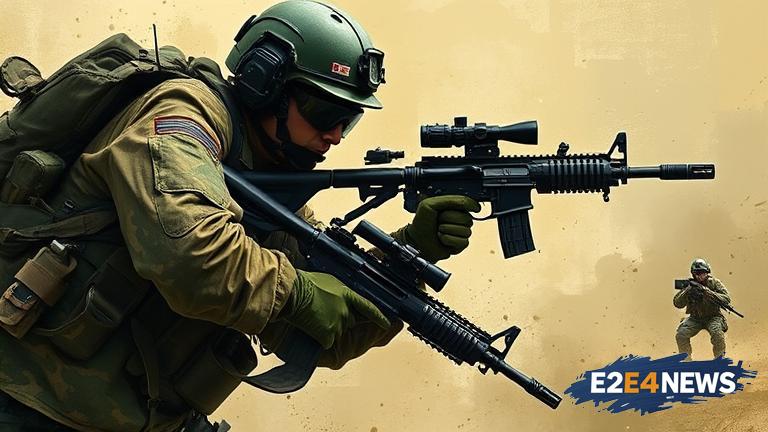Commando missions are a crucial part of modern warfare, requiring a unique blend of skill, strategy, and bravery. These missions are typically undertaken by elite special forces, such as the British SAS or the US Navy SEALs, who are trained to operate in the most challenging and high-pressure environments. The world of commando missions is shrouded in secrecy, but it is clear that these operations play a vital role in protecting national security and advancing military objectives. From counter-terrorism to hostage rescue, commando missions are often the first line of defense against threats to global stability. The training and preparation that go into these missions are rigorous and demanding, pushing operatives to their limits and beyond. Commando teams are typically small and highly specialized, with each member bringing their own unique skills and expertise to the table. They must be able to think on their feet, adapt to changing circumstances, and make split-second decisions that can mean the difference between life and death. The history of commando missions dates back to World War II, when the British formed the first special forces units to conduct raids and sabotage behind enemy lines. Since then, the concept of commando warfare has evolved and expanded, with modern special forces units employing advanced technology and tactics to achieve their objectives. Despite the many successes of commando missions, they are not without risk, and operatives often face extreme danger and uncertainty. The psychological and physical toll of these missions can be significant, and operatives must be carefully selected and trained to withstand the stresses and pressures of this type of work. In recent years, commando missions have been used to combat terrorism and insurgency, with special forces units playing a key role in operations in Afghanistan, Iraq, and other conflict zones. The use of commando missions has also raised questions about the role of special forces in modern warfare, with some arguing that they are a vital tool in the fight against terrorism and others expressing concerns about the lack of transparency and accountability. As the nature of warfare continues to evolve, it is likely that commando missions will remain a key component of military strategy, with special forces units continuing to play a vital role in protecting national security and advancing military objectives. The secrecy surrounding commando missions can make it difficult to gather information about these operations, but it is clear that they are a crucial part of modern warfare. The bravery and sacrifice of commando operatives are an inspiration to many, and their contributions to national security are immeasurable. In conclusion, commando missions are a fascinating and complex topic, with a rich history and a vital role to play in modern warfare. Whether you are interested in military history, special forces, or the latest developments in counter-terrorism, commando missions are an important and intriguing subject that is sure to captivate and inspire. With their unique blend of skill, strategy, and bravery, commando operatives are the ultimate warriors, and their missions are a testament to the power and effectiveness of special forces units. As we look to the future, it is clear that commando missions will continue to play a vital role in protecting national security and advancing military objectives, and their importance will only continue to grow. The world of commando missions is a secretive and exclusive one, but it is clear that these operations are a crucial part of modern warfare. With the use of advanced technology and tactics, commando missions are becoming increasingly sophisticated, and their effectiveness is being felt on the battlefield. The training and preparation that go into these missions are rigorous and demanding, and operatives must be carefully selected and trained to withstand the stresses and pressures of this type of work. In the end, commando missions are a vital tool in the fight against terrorism and insurgency, and their importance will only continue to grow as the nature of warfare continues to evolve.





